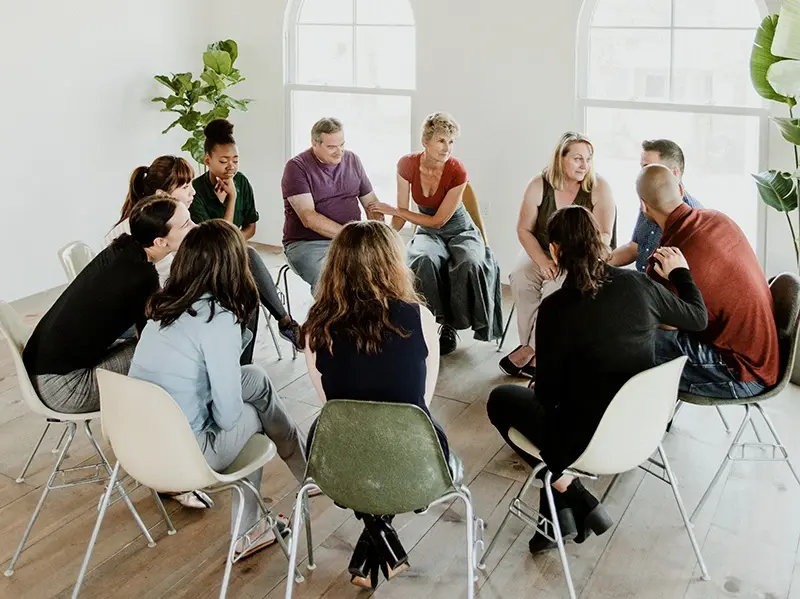Helping Without Harming: How to Stop Enabling an Alcoholic or Addict
- Mitchell Curtis
- Mar 28, 2022
- 3 min read
Updated: Oct 13, 2025
Many people trying to support a loved one with an addiction unknowingly contribute to their continued substance use. This article offers practical, compassionate advice on how to stop enabling behaviour and start encouraging recovery.

Understanding Enabling: What It Really Means
Enabling involves shielding a loved one from the consequences of their actions, often with good intentions. These behaviours can be hard to spot but play a major role in delaying recovery.
Recognising Enabling Patterns
Taking over their responsibilities at home
Covering for missed work or social obligations
Offering financial help or housing
Downplaying or hiding their addiction
Making excuses for their behaviour

Signs of Enabling are often subtle but cumulative. While often rooted in love, these actions can prevent a person from experiencing the discomfort that may prompt change.
Why It Matters: The Impact of Enabling on Recovery
When someone doesn’t face the outcomes of their addiction, there’s little motivation to seek help. Enabling creates a buffer that protects the addiction, not the person. Why Enabling Prevents Recovery is a well-documented phenomenon.
Helping vs Enabling: Know the Difference
To make real change, it’s crucial to distinguish support from enabling. Helping empowers; enabling disables.
Helping
Encouraging treatment
Setting clear boundaries
Encouraging participation in 12-step meetings
Enabling
Excusing harmful behaviour
Providing money for unknown use
Hiding consequences from others
Read more about Helping vs Enabling.

Actionable Steps: How to Stop Enabling an Addict or Alcoholic
Step 1: Set Boundaries That Matter
Define what behaviours are acceptable in your life and stick to your decisions. Boundaries should be about protecting your wellbeing, not trying to control someone else.
Example: “I will not allow alcohol in my home.”
Refer to our guide on what to say to a loved one who is addicted to a substance.
Step 2: Allow Consequences to Unfold
Stop stepping in to prevent natural outcomes. If your loved one loses a job or faces legal trouble, these moments may lead to a turning point.
Step 3: Say No to Financial Support
Avoid providing money or covering living expenses. Financial support, even for necessities, can sustain addiction indirectly.
Step 4: Redirect to Healthy Support Options
Rather than rescuing, guide your loved one toward helpful resources:
Do's and Don’ts of Supporting Without Enabling

What to Expect When You Change Your Behaviour
When enabling stops, the reaction from your loved one may be emotional. Anger, guilt-tripping, or withdrawal are common. Stay firm and seek your own support network to manage this transition.
For more help, visit support for family and friends.
Alternatives to Enabling: What You Can Do Instead
Instead of stepping in, consider:
Focusing on your own healing
Rebuilding your social and emotional wellbeing
Seeking guidance from professionals
Al-Anon and Other Support Resources
Groups like Al-Anon Family Groups South Africa help families and friends understand addiction, stop enabling, and find peace despite their loved one’s choices.

Family support for addiction recovery
Group | Description |
An international group supporting friends and family affected by a loved one’s alcohol use. | |
A youth-focused division of Al-Anon created to support adolescents with alcoholic family members. | |
Families Anonymous helps those worried about the drug use or behaviour of someone close to them. | |
GRASP (Grief Recovery After Substance Passing) is a support group for those grieving the loss of a loved one to substance abuse. | |
The National Alliance on Mental Illness (NAMI) provides support for loved ones of individuals facing mental health challenges. | |
A worldwide group offering support to relatives and friends of those struggling with drug addiction. | |
This support group takes a research-driven, gentle approach to helping loved ones, offering an alternative to Al-Anon. |
Other options include:
Helplines like SADAG
We’re here to help. Get in touch to learn about support and treatment options for your loved one. Reach out now to find out more.





Comments